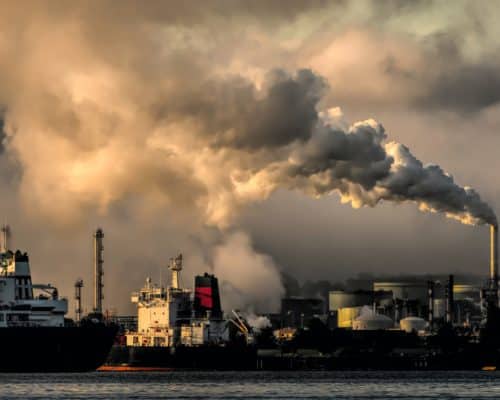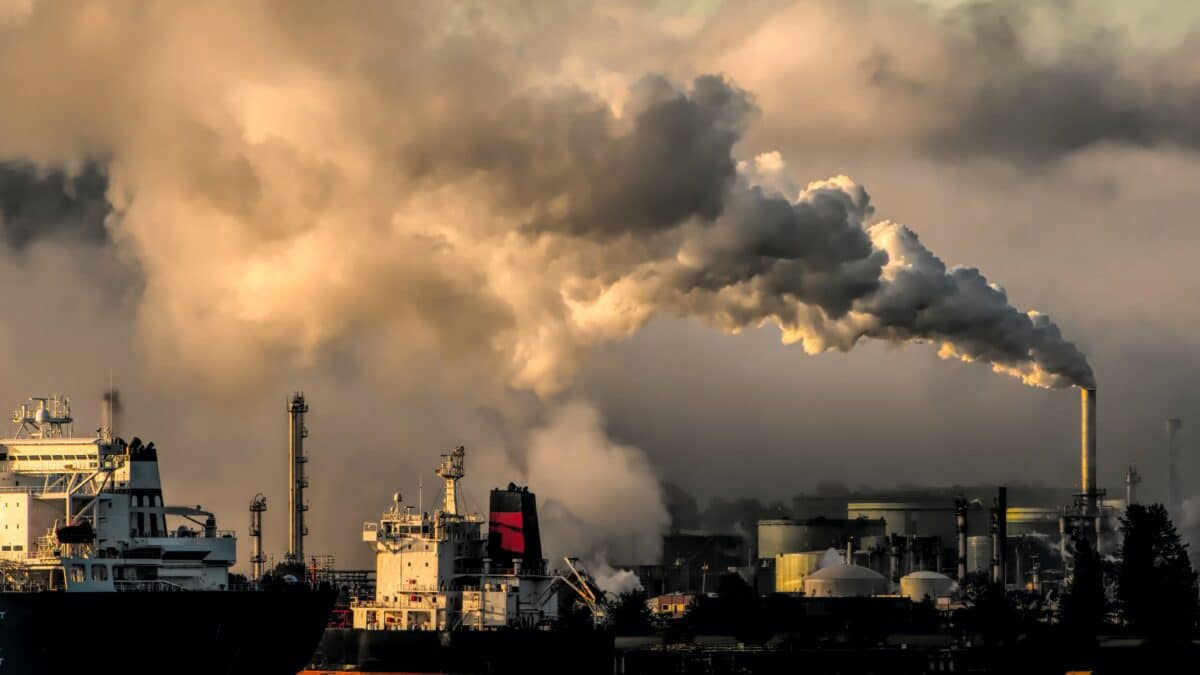Fossil Fuel

IPCC Report: Climate Finance for Adaptation Must Increase for Developing Countries
The latest IPCC Working Group II report largely stresses the need to accelerate climate adaptation, eradicate injustice and end the use of fossil fuels. The report, ‘Climate Change 2022: Impacts, Adaptation, and Vulnerability,’ emphasised that coal and other fossil fuels are choking humanity.

The LNG Outlook of the Philippines and Its Impact on the Country’s Future
In a world where gas is becoming the "new coal" in the eyes of financial institutions, governments and the public, the Philippines has to withstand the pressure to lock itself into a fossil fuel-powered future.
The Risks of the Myanmar LNG Pipeline
The global net-zero pursuit seems the least of Myanmar's problems today. If not for the green future, however, the country should reconsider its LNG pipeline to avoid further worsening its reputation, economic and energy security situation.

The Japan Transition Bonds Programme and the Transition Washing Concerns
In the era of ESG-conscious investors, green and transition washing moves are quickly found out. The case of JERA and Tokyo Gas transition bonds programs risk eroding the trust of the financial industry in Japan and its clean energy transition commitments.

The Global LNG Market and Long-Term Contracts – A Barrier to Net-Zero 2050
Asian countries are becoming victims of the lack of flexibility in long-term gas contracts. However, the associated energy security risk, volatile prices and supply/demand imbalances don't top the agenda of the primary concerns. The incompatibility of gas with the global net-zero efforts does.
The China Belt and Road Initiative Investment Report 2021 and its Message to the World
The latest Belt and Road Initiative Investment Report is a testament that China will be looking to further strengthen its case as the global clean energy leader through extensive green financing and diminishing support for coal.
China’s Hydrogen Strategy for Olympics 2022: Pushing Green Hydrogen Transport
The Beijing Olympics are being powered by 100% renewable energy. A significant part of this is public transportation vehicles that run on green hydrogen. What does this mean for the future of hydrogen energy in Asia?
Hin Kong – Could the Thailand Gas Project Derail AIIB’s Reputation?
The AIIB will later this month decide whether to fund Hin Kong, a 1,400 MW gas project in Thailand. However, the voices against such a decision are getting louder and louder. Will AIIB take the right step?
What Is Behind the Japan Ammonia Greenwash Accusations?
The Japan ammonia greenwash accusations are the latest testament of the country's hesitance to actively pursue a renewable-led future. After hydrogen, it now looks towards another fuel that experts consider more of a distraction, rather than a solution.
How the Oil and Gas Sector Can Drive Renewable Energy Growth
The oil and gas sector currently employs over 12.6 million people, but demand is shrinking. On the other hand, demand for renewable energy workers is increasing.
How Banks Are Making It Hard to Fight Climate Change
While banks are increasingly looking to diversify into climate-friendly portfolios, many institutions continue to back coal. Due to their increased responsibility and influential role in fighting climate change, banks should aim to end support for coal expansion and redirect financing towards renewable energy projects.
The Reality Behind China’s Net-Zero Target: Can It Be Achieved?
China's 2060 net-zero target is starting to appear in question. Their recent increase in coal production, combined with lacklustre commitments at COP26, are not good signs. This raises several red flags, as China has significant influence over the region, and their climate actions will have trickle-down effects that dictate regional net-zero progress.
South Korean Green Taxonomy Declared ‘Gas is Green’
The government's decision to include gas in the Korean green taxonomy risks jeopardising the country's net-zero plans. Investors and environmental groups were quick to raise concerns, stating that, as a fossil fuel, gas carries high financial and climate risks. The question is will the Korean government listen?

Indonesia Bans Coal Exports for January – What it Means for the World
The effect of Indonesia's decision to ban January coal exports ripples through the leading Asian economies. Coal shipment bans from leading exporters are yet another reminder that fossil fuels are a dead end and surface an extensive universe of risks. However, they might prove detrimental in putting the industry to bed.
Most Popular
Categories
-
10
-
34
-
126
-
4
-
17
-
46
-
52
-
11
-
10
-
15
-
24
-
6
-
1
-
5
-
6
-
283
-
200
-
17
-
24
-
1
-
1
-
23
-
41
-
44
-
88
-
18
-
86
-
41
-
17
-
11
-
43
-
54
-
86
-
299
-
22
-
44
-
36
-
11
-
42
-
36

